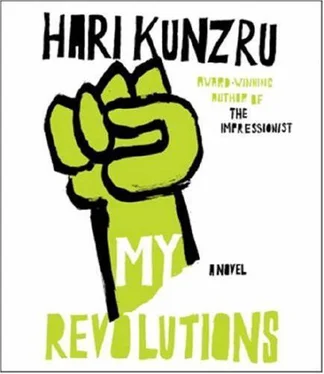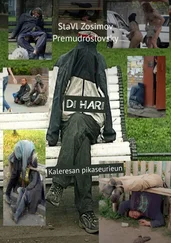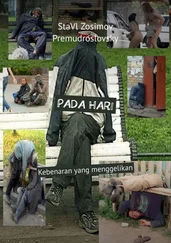On the day of the march my mood oscillated wildly. The Lansdowne Road group took a vote and decided as a bloc that if there was a move to divert to Grosvenor Square we’d go along. We put on heavy shoes, extra layers of clothes, padding our bodies in case there was a fight. Sean filled his pockets with marbles. “For the horses,” he said. For a while, as we walked along Fleet Street, I felt OK. The crowd stretched away as far as the eye could see and the chants of “U.S. out!” reverberated in the enclosed space. The newspapers had taken their own dire warnings seriously: we passed rows of boarded-up office windows. I looked around at Anna and Sean and the others and felt I was part of something, that perhaps together we could make a difference. At Trafalgar Square, as the stewards shepherded the march in the direction of Whitehall (“Turn left! Turn left!”), thousands of us broke away, running
through the streets, shouting and letting off firecrackers. At Grosvenor Square the police were waiting. As we reached it we saw an enormous cordon in front of the embassy. Various groups had decided to leave the main march: there were anarchists, Maoists, nonsectarian people we knew from Notting Hill. Together we linked arms and charged the police line, but time and again they repelled us. Just as we’d become more disciplined, so had they. In the end we forced them back through sheer weight of numbers. After that, as I’d feared, it degenerated. They started using their truncheons. They charged us with horses. It became a repeat of the March demonstration, with one significant difference: this time my friends stayed with me. Everyone from Charlie’s — a group of about twenty of us — kept as closely together as we could. We ran together. We stood together. And we fought. We threw stones and distress flares and marbles. When a policeman tried to grab Anna, we rushed in and tore her free.
Afterward, back at Lansdowne Road, bruised and crushingly tired, we watched ourselves on television, soundtracked by a disapproving commentary. The home secretary came on to praise the Whitehall protesters for their “self-control.” “I doubt,” he said, “if this kind of demonstration could have taken place so peacefully anywhere else in the world.”
“Can someone tell me what the hell the point of today was?” I asked. No one replied.
* * *
After Miles came to dinner, I couldn’t sleep. I got up and made a cup of chamomile tea, which I held as I sat awake in the study, looking out at the lawn, the skeletal branches of the pear tree silhouetted against the sky. On the second night it was the same. On the third night, as I lay rigid in bed, imagining the phone call that hadn’t come, Miranda noticed and solicitously dropped lavender oil on my pillow, offering me a tincture of valerian to drink, a sample of a new Bountessence product she was thinking of calling “Lethe Water.”
Ever since then — four months now — when I haven’t been able to sleep I’ve sneaked out and let myself into the shop, where I spend the night sifting through old books and papers, only coming home as the dawn breaks to “wake up” in bed next to Miranda. I do that two, maybe three times a week. The other nights I drink. There’s not too much of a smell with vodka. I keep it in a filing cabinet in the study. I hadn’t drunk alcohol since Thailand. It works well enough as a sedative, but it scares me, because it reminds me that what I’d really like to do is score. What I’d like to do is sit at night in the study and fix up and look at the pear tree, wrapped in total indifference: mine to the world, its to me.
At first I thought I’d find something in God’s books. Perhaps a clue to what Miles wanted. It wasn’t logical. I was like the drunk who loses his keys on the way home from the pub and looks for them under the streetlight, because that’s where it’s easiest to see.
In the glass case where God keeps his more valuable stock is a folio of Jeremy Wilson pictures. Complete, Modern People has become a collector’s item, its black-and-white photographs of musicians, artists, and other taste-makers of mid-sixties London reproduced in numerous books and magazines. God’s copy has
John Lennon missing, but is still worth a couple of hundred quid. Looking through it one night I spotted Anna, in the background of a shot of a famous gallerist. She was leaning against a pillar in a white-walled studio peopled by serious-looking hipsters holding dramatic props — an ear-trumpet, a classical bust. In her shiny plastic raincoat and heavy makeup she was barely recognizable as the woman I knew a few years later. Exactly ten years separated that and the second photo, the figure leaning out of the embassy window in Copenhagen. She’d moved so quickly to the end of her journey.
Except it wasn’t the end. I’d seen her. I’d seen her swinging her arms, smoking a cigarette. Little by little I identified what I felt: jealousy, a slow, viscous panic seeping out of my bones. She was alive. She’d been alive all the time. Without my knowledge we’d swapped places. I was the dead one, the old photograph, frozen in time, my blacks turning brown, my whites yellowing with age. And what about Miles? From the start he’d been deader than I could ever be and now he was walking abroad with his rictus grin, lumbering through the tissue-paper screen of my life with Miranda. Miles was after Anna. Surely that was it. The Michael Frame identity was blown and must have been blown for some time, but there was no urgency in the way I was being approached. I was being coaxed, handled. If I’d been important in my own right, armed police would have been at my door: the house surrounded, four in the morning when the body is at its lowest. After so many years, it felt strange to find out I mattered so little.
Whatever Miles needed me for, it seemed to be worth taking care over. Meanwhile he left me entirely alone. I drank in secret; I jumped every time I heard the phone. Otherwise, strange to say, it was a good Christmas. Sam, Miranda, and I did the things people do, ate too much, sat in our pajamas watching It’s a Wonderful Life on television. It was as if we had an understanding, a pact not to shatter the sugar-glass of our holiday. Over the years, the pagan solstice Miranda was celebrating when I first knew her, an awkward personal substitute for her parents’ Judaism, had gradually been sprinkled in style-magazine Scandinavian kitsch. In the front room
stood an enormous tree decorated with rustic straw ornaments she’d bought in London. Every surface twinkled with tea lights. Sam, queen of pester-power, had always craved the Christmas advertised on television, the big family party shot in golden soft focus, the turkey and the plastic snow. So it was amusing to see her roll her eyes at her mother’s “commercialism.” Miranda was confused, wrong-footed by her daughter. I could see her wondering how Sam had changed so effortlessly in two short months away from us.
“She’s growing up,” I whispered, as we picked at leftovers in the kitchen. “That’s all.”
Miranda shook her head, annoyed. “Do you see how she’s dressed? She’s plaited beads into her hair.”
“Listen to you.”
“I don’t mean that, Mike. It’s just she was always so conservative.”
“If she thinks we’re talking about her, she’ll be furious.”
We hugged. Guiltily I kneaded her shoulders, ran my fingers down the ridge of her spine. Perhaps there’s a finite amount of reality in the world, only so much energy flowing round in the circuit. The more I’d thought about Anna, about Sean and Lansdowne Road and all the rest of it, the less real Miranda had come to seem. Despite her physical presence, her body pressed against mine as we stood there in the kitchen, for weeks she’d been most clearly present to me in her traces, the plume of blood in the toilet when she had her period, the underwear puddled on her side of the bed. I tried to suppress the urgency I felt as I held her, the need for greater contact. I was afraid she’d pick up on it and ask questions.
Читать дальше












